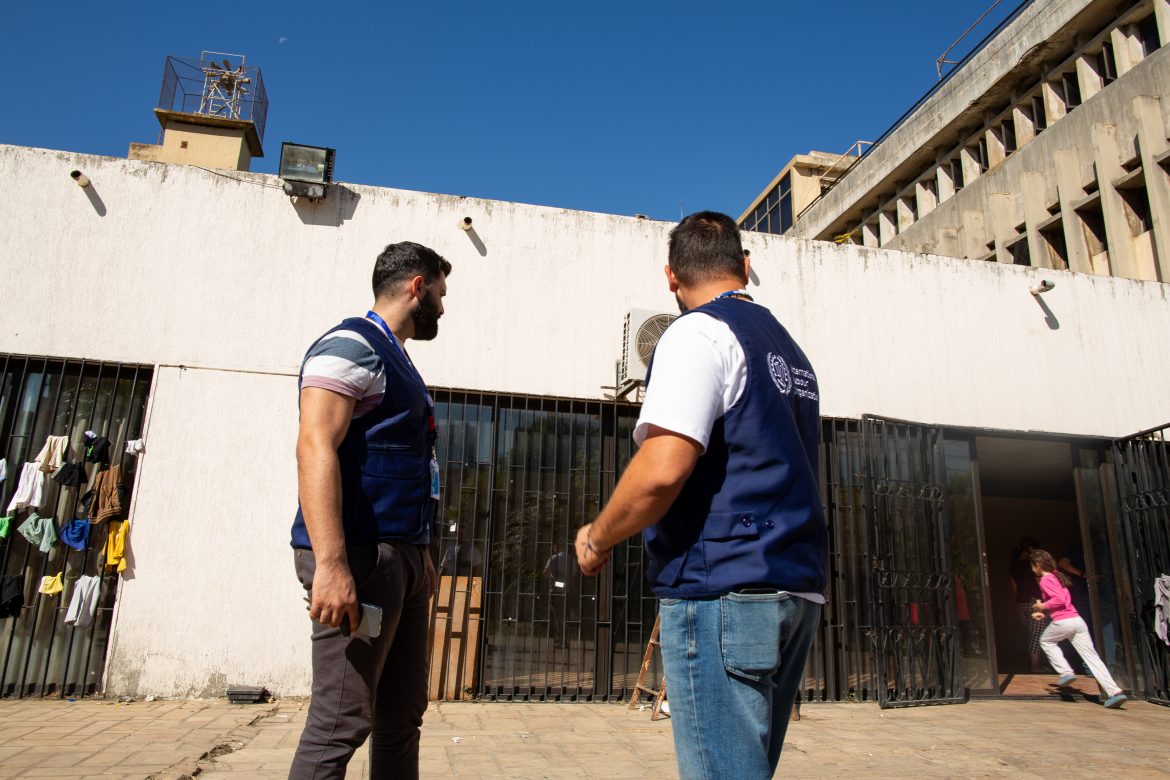Working with its national partners, the ILO’s Emergency Response Plan prepares the ground for long-term recovery.
BEIRUT, 12 November 2024, (ILO News) – The ILO is implementing a multi-dimensional emergency plan to respond to the escalating crisis in Lebanon, as part of the wider UN response in the country.
The Emergency Response Plan centres on enhancing social protection through immediate cash benefits, rehabilitating infrastructure at shelters housing displaced people, and more broadly sustaining jobs, enterprises and livelihoods, in keeping with the ILO’s mandate to advance social protection and ensure decent work opportunities and long-term economic sustainability.
The violence has displaced over 1.2 million people, which is the equivalent of more than 20 percent of the country’s total population, two thirds of whom are children and women.
“The humanitarian situation in Lebanon has reached unprecedented levels. Thousands of civilians have been killed and injured. Lebanon and its residents are in need of immediate and impactful support to mitigate the effects of this conflict. The ILO has spared no effort in working alongside national and international actors to support the Government, workers and employers. The ILO’s emergency response complements the humanitarian response and prepares the ground for recovery,” said ILO Regional Director for Arab States Ruba Jaradat.
The Plan is supported by ILO projects already underway in Lebanon, using internal resources and repurposed funds from the EU, Germany, the Netherlands, Sweden and the United Kingdom. It is being implemented in collaboration with national and local authorities, UN partners and worker and employer organizations.
“I extend the ILO’s deep gratitude to our development partners for their support of this crucial response plan,” Jaradat said.
The ILO response plan works to enhance living conditions for displaced families in collective shelters, while providing work opportunities for local community members within the vicinity of the shelters. Works include construction, refurbishment, clearing and cleaning works, communal cooking, and preparing buildings used as shelters for the upcoming winter months. The plan is especially vital in light of the financial and economic crisis Lebanon has witnessed since 2019, which has dramatically impacted the country’s institutions, public services, labour market and social protection system. The current displacement crisis has further strained the country’s already meagre resources.
The Emergence Response Plan includes immediate measures the ILO has taken in partnership with the Ministry of Social Affairs and UNICEF, to enhance social protection support vulnerable populations, such as advance payments to over 27,000 persons with disabilities, additional emergency top-up payments to over 5,000 beneficiaries, and a planned expansion of the emergency cash assistance to tens of thousands of others. The ILO is also collaborating with the National Social Security Fund (NSSF) and UN agencies to enhance the NSSF’s health insurance efficiency, aiming to expand social health protection for displaced and affected populations this month.
In addition, the ILO and the Lebanon Ministry of Agriculture are also supporting farmers in maintaining vital agricultural production and safeguarding existing agricultural jobs and livelihoods by providing them with access to resources necessary for agricultural production, storage facilities and markets. The ILO is also running technical vocational courses in cooking and winter kit production, providing workers with new skills and job opportunities while supplying displaced people with food and essential items.
The ILO is working with the General Confederation of Lebanese Workers (CGTL) and the National Federation of Workers’ and Employees’ Trade Unions of Lebanon (FENASOL) in establishing crisis cells, and providing support to their displaced members, with a special focus on migrant communities who are often not able to access government-run shelters. It is also supporting the Association of Lebanese Industrialists (ALI) and strengthening its capacity to address the needs of enterprises and better support displaced communities.
To assess the full impact of the war on Lebanon’s workers and enterprises, the ILO, in collaboration with workers’ and employers’ organizations, is also conducting a rapid assessment that uses surveys and qualitative interviews, to eventually inform policies and interventions and strengthen economic stability and resilience in the labour market.
About the ILO: Advancing social justice, promoting decent work
The International Labour Organization is the United Nations agency for the world of work. We bring together governments, employers and workers to drive a human-centred approach to the future of work through employment creation, rights at work, social protection and social dialogue.

